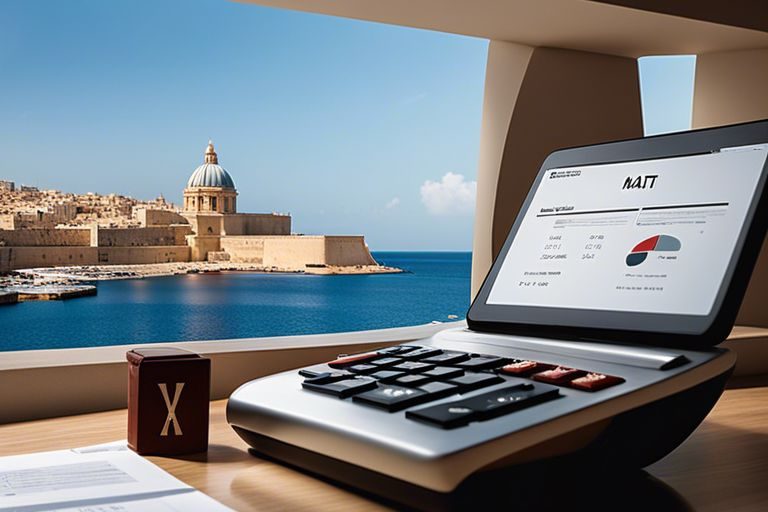Understanding Malta’s Tax Regulations

Malta has established robust tax regulations that individuals and businesses must adhere to. It is crucial to have a clear understanding of the tax laws in Malta to avoid any penalties or legal issues. Whether you are a resident, non-resident, or a business owner, knowing the tax obligations is important for compliance. This blog post will examine into the key aspects of Malta’s tax regulations, highlighting important details that can impact your financial standing. Stay informed and educated to navigate the tax landscape in Malta effectively.
Corporate Taxation in Malta
Corporate Tax Rates and Incentives
The corporate tax rate in Malta is 35%, but the effective tax rate can be significantly reduced due to various tax credits, refunds, and participation exemptions available. With the imputation system in place, shareholders receive a refund of 6/7th of the tax paid by the company upon the distribution of dividends. This, along with the absence of withholding taxes on outbound dividends, makes Malta an attractive location for businesses looking to optimize their tax burdens.
Anti-Avoidance Measures and Compliance
Corporate tax avoidance and evasion are strictly monitored in Malta. The country has implemented robust anti-avoidance measures to ensure compliance with tax regulations. Companies operating in Malta must adhere to strict reporting requirements and maintain accurate financial records. The Maltese tax authorities have the power to investigate any potential tax avoidance schemes and impose penalties on non-compliant entities.
Incentives: Malta offers various incentives to attract businesses, including tax credits, double taxation relief, and the participation exemption regime. These incentives aim to promote investment, innovation, and job creation in the country. However, it is important for businesses to ensure that they comply with all tax regulations to avoid penalties and maintain a positive reputation in the jurisdiction.
Personal Taxation in Malta
Little is known about personal taxation in Malta. The country has a progressive tax system that applies to individuals residing in Malta for tax purposes. Understanding the tax regulations can help individuals navigate their tax obligations and maximize their savings.
Income Tax Rates for Individuals
Any individual who is a resident in Malta is subject to income tax on their worldwide income. The tax rates for individuals range from 0% to 35%, depending on the level of income. Malta operates a system of tax credits and rebates to provide relief for low- and middle-income earners.
Expat and Non-Domiciled Resident Taxation
One key aspect of Malta’s tax regulations is the treatment of expatriates and non-domiciled residents. Expats who are resident in Malta are taxed on their Malta-source income and any foreign income remitted to Malta. Non-domiciled residents may benefit from special tax status, providing certain conditions are met.
Understanding the tax implications for expats and non-domiciled residents is crucial for individuals looking to relocate to Malta for work or personal reasons. Expats should seek professional advice to ensure compliance with Malta’s tax laws and take advantage of any available tax incentives.
Value-Added Tax (VAT) and Other Indirect Taxes
Understanding VAT in Malta
After income tax, Value-Added Tax (VAT) is one of the most significant sources of revenue for the Maltese government. VAT in Malta is imposed on the supply of goods and services at each stage of the production and distribution chain.
Excise Duties and Stamp Duties
Other indirect taxes in Malta include Excise Duties and Stamp Duties. Excise duties are taxes levied on specific goods such as tobacco, alcohol, and fuel. Stamp duties are applicable to various legal documents, including property transfers and commercial transactions.
For instance, failure to comply with excise duty regulations can result in hefty fines or even imprisonment for individuals or businesses. It is crucial to understand and adhere to these regulations to avoid legal repercussions. On the other hand, stamp duties play a role in property transactions, where failing to pay the required duty can lead to significant financial penalties. It is important to consult with tax professionals to ensure compliance with these indirect tax obligations.
International Tax Considerations
Double Taxation Agreements
Now, when engaging in international business activities, it is crucial for businesses to be aware of Double Taxation Agreements (DTAs) that Malta has in place with various countries. These agreements aim to prevent income from being taxed twice, once in the country of source and again in the country of residence.
EU Directives and Their Impact on Malta
For businesses operating within the European Union, understanding the EU Directives and their impact on Malta is necessary. These directives have a significant influence on how taxes are applied to cross-border activities within the EU, affecting aspects such as withholding taxes, mergers, and interest and royalties.
Directives: The EU Directives provide a framework for the harmonization of tax laws among EU member states, aiming to promote a level playing field for businesses operating within the single market. One of the most notable directives is the Parent-Subsidiary Directive, which allows for the tax-free repatriation of profits between associated companies in different EU member states. However, it is important for businesses to be cautious as non-compliance with these directives can lead to penalties and possible double taxation.
Recommended Posts

Financial Aspects of Doing Business in Malta
July 26, 2024

The Rise of Digital Banking Solutions in Malta
July 24, 2024




